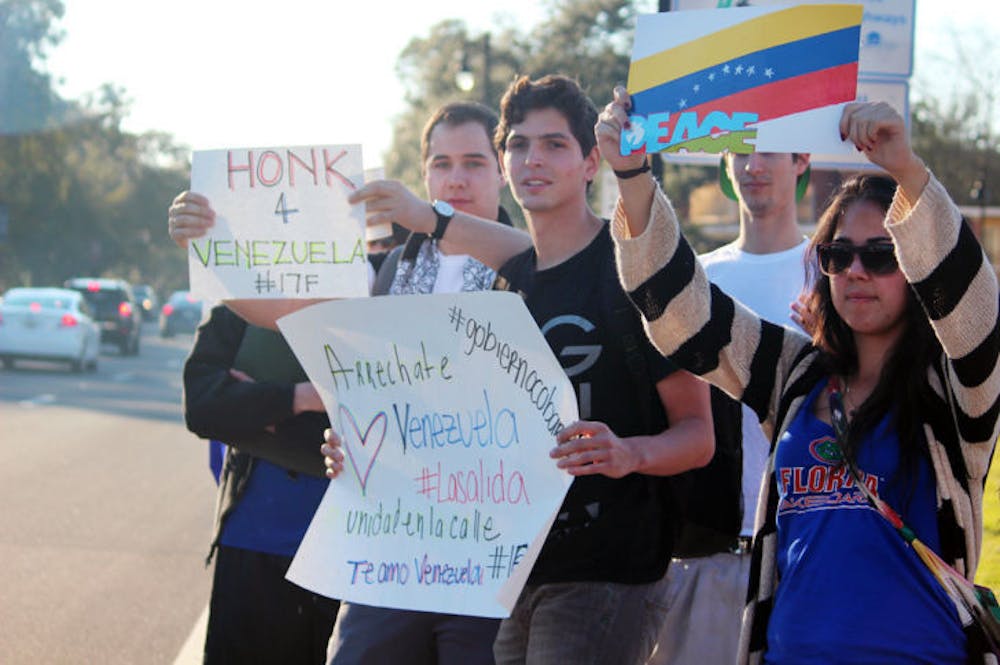After government attempts to silence opposition in Venezuela, UF students are fighting to give the people a voice.
Last week, three Venezuelans were shot dead, and dozens were injured or detained after anti-government protests sparked chaos in the capital.
In response, Venezuelan native Andreina Nash, a 21-year-old UF marketing and telecommunication junior, said she spent 12 hours creating a YouTube video.
“What’s going on in Venezuela in a nutshell” has gone viral, with more than 1.6 million views since Friday.
Nash said she’s been called the voice of Venezuela and asked to translate her video into several languages.
“I’ll stand up for any injustices that are happening,” she said, “and for any young person that feels like they don’t have a future in their own country.”
Nash and dozens of supporters stood on the corner of University Avenue and Northwest 13th Street on Monday holding signs, displaying Venezuelan flags and singing the country’s national anthem.
Nash said the protest wasn’t about politics but was instead about supporting the youth.
She said many of the university’s Venezuelan students are in the United States to learn English and will return when their visas expire.
“They’re fighting outside because they want to go back to a better Venezuela,” she said.
Center for Latin American Studies director Philip J. Williams said Venezuelan UF students turned to protesting because they feel helpless.
“It’s a small symbolic act,” he said, “but I think it’s important nonetheless to draw attention to developments there.”
Williams said a lot of the dissatisfaction in the country comes from the economic situation, leaving many students worried about post-graduation opportunities.
Atilio Atencio, a 19-year-old UF biochemistry sophomore from Valera, Venezuela, said everything is scarce in his home country.
That includes toilet paper and toothpaste — now luxury items.
He said Harina P.A.N., the corn meal used in many popular Venezuelan foods, isn’t available.
Atencio said two of his cousins were involved in demonstrations in the college town of Merida, but they weren’t hurt.
Students are the ones protesting because they are the most educated, he said.
“It’s a matter of publicity,” Atencio said. “The more the world is aware, the more they’re going to push for change.”
However, Williams, who is also a professor of political science and Latin American studies, said the U.S. shouldn’t get involved if human rights aren’t being violated.
“Venezuelans have to determine their future,” he said. “It’s a sovereign country… and it’s not our government’s place to take sides.”
Still, Nash said she plans to fight as long as it takes.
She said she hopes the last video she dedicates to her country is one of Venezuela with liberty and democracy.
“I have a feeling that this time it will be different,” Nash said. “Our voices will be heard.”
[A version of this story ran on page 3 on 2/18/2014 under the headline "Students speak up for Venezuela"]
Students and members of the Gainesville community protest the killing and jailing of students in Venezuela and the corruption of its government’s power. The protest was held Monday.






